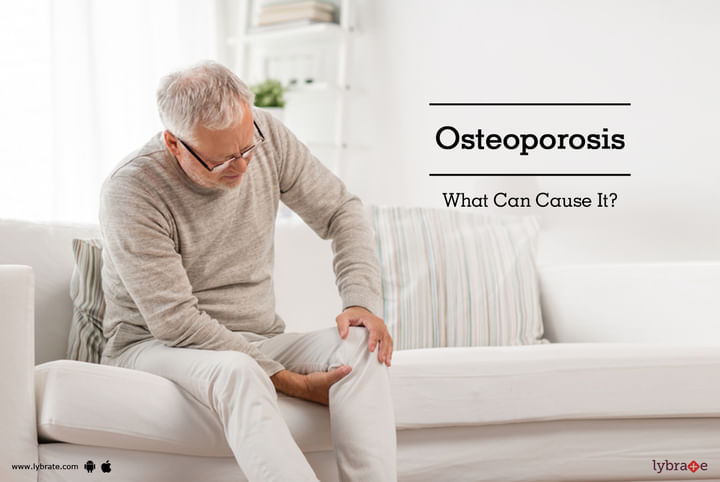Osteoporosis - What Can Cause It?
Osteoporosis in very simple terms is a condition that causes spongy bones. The bones develop pores and become fragile with increased susceptibility to fractures. In average, all our bones get weak after the age of 35 years which means that the bone mass decreases. Women after menopause are especially susceptible to this condition and also osteoporotic fractures. What are the other risk factors for osteoporosis? Knowing this is important for your bone health as it will help to prevent fractures. But before we discuss the causes of osteoporosis, it’ is important to point out that osteoporosis has no symptoms and it can only be diagnosed when you have a fracture for no reason at all, or you get a bone density test to diagnose osteoporosis.
Some of the factors that can lead to osteoporosis are:
- Genetics
- Lack of exercise
- Low calcium and low vitamin D levels
- A personal history of fracture as an adult
- Smoking
- Excessive alcohol consumption
- Rheumatoid arthritis
- Low body weight
- Family history of osteoporosis which means having a mother with an osteoporotic hip fracture doubles your risk of a hip fracture as well
- Chemotherapy for treating cancer also increases the risk of osteoporosis as it causes early menopause.
- In men, low testosterone levels known as hypogonadism can cause this condition.
- The absence of menstrual periods known as amenorrhea in younger women also predisposes them to osteoporosis as it causes low estrogen levels. Amenorrhea can occur in women who undergo extremely vigorous physical training or those that practice extreme dieting. As their body fat goes down they experience amenorrhoea.
- Chronic inflammation, due to chronic inflammatory arthritis and also liver disease can cause osteoporosis.
- Any condition that interferes with walking such as stroke can cause spongy bones.
- Hyperthyroidism, a condition that causes an increase in production of the thyroid hormone can cause spongy bones too.
Some other factors that can lead to it
- Hyperparathyroidism a disease where there is an increased parathyroid hormone production by the parathyroid gland. This hormone maintains blood calcium levels by absorbing calcium from the bones. This can cause osteoporosis.
- Low vitamin D causes low absorption of calcium from diet and hence you are at risk of developing osteoporosis. Conditions such as celiac sprue or biliary cirrhosis which hamper the absorption of vitamin D can also cause osteoporosis.
- Medications such as heparin, a blood thinner, anti-seizure medicines such as Dilantin and phenobarbital, and long-term use of oral corticosteroids- can all up osteoporosis risks.
The diagnosis of osteoporosis is simple and it is advisable that older people especially women get periodic X- rays and bone density tests to rule out this bone condition.



+1.svg)
